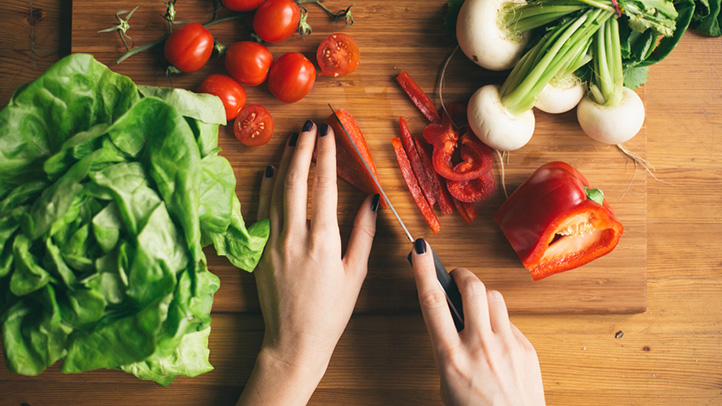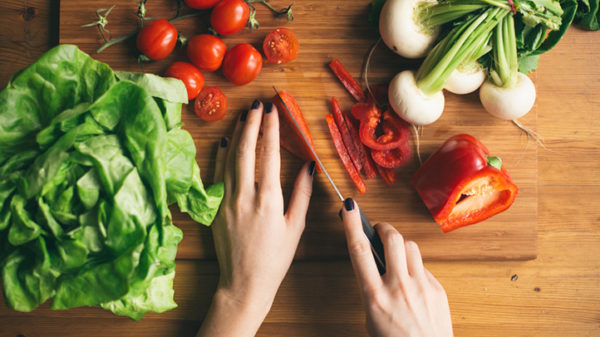
20 Aug Mistakes to Avoid On Plant-Based Diet
You were an early adopter or have finally given in to the steady beat beat beat of drums (arguably Michael Pollan too) and are avoiding meat and perhaps dairy in your diet. Now you can wave your green flag on high and declare you are on the road to a healthier, happier you – and planet, right? Well, maybe. In this blog curated from EcoWatch, Rachael Link, MS, RD writes about “12 Mistakes to Avoid on a Vegetarian or Vegan Diet.” Read on for details.

A balanced vegetarian or vegan diet can provide many health benefits.
These diets have been associated with weight loss, better blood sugar control, a decreased risk of heart disease and a lower risk of certain types of cancer.
However, it can be challenging to maintain a well-rounded vegetarian diet that provides all the nutrients you need.
This article uncovers some of the most common mistakes people make on a vegan or vegetarian diet, and how to avoid them.
1. Assuming That Vegan or Vegetarian Products Are Automatically Healthier
Unfortunately, just because a food product is labeled “vegetarian” or “vegan” doesn’t necessarily mean it’s healthier than the regular alternative.
For example, almond milk is a popular, plant-based milk that’s often a staple in vegan diets.
However, while almond milk is low in calories and enriched with several important vitamins and minerals, it is not necessarily healthier than cow’s milk.
For example, 1 cup (240 ml) of low-fat cow’s milk contains 8 grams of protein, while the same amount of unsweetened almond milk contains only 1 gram (5, 6).
Sweetened almond milk can also be high in added sugar, with 16 grams of sugar in just 1 cup (7).
Other vegetarian products, such as soy-based veggie burgers, nuggets and meat alternatives, are often highly processed, with a long list of artificial ingredients. So they’re often no healthier than other non-vegetarian processed foods.
Despite being vegetarian, these products are also often high in calories, yet lacking the protein, fiber and nutrients necessary for a balanced meal.
While these products may ease your transition to a vegan or vegetarian diet, it’s best to consume them in moderation with a diet rich in nutritious, whole foods.
Summary: Many foods marketed as vegetarian or vegan are often highly processed, high in added sugar or lacking in nutrients. If you include these products in your diet, eat them only in moderation.
2. Not Getting Enough Vitamin B12
Vitamin B12 plays several important roles in the body. It’s important in the creation of red blood cells and DNA, among other processes.
Unfortunately, the main sources of vitamin B12 are animal products, such as meat, poultry, shellfish, eggs and milk products.
For this reason, vegetarians have an increased risk of vitamin B12 deficiency.
Vitamin B12 deficiency can cause fatigue, memory problems and numbness. It can also lead to megaloblastic anemia, a condition caused by having a lower-than-normal amount of red blood cells.
Unfortunately, a high intake of folate can actually mask vitamin B12 deficiency, hiding symptoms until the damage becomes irreversible.
However, there are foods and supplements available that can help vegetarians meet their vitamin B12 needs.
Besides animal products, fortified foods and certain types of edible algae also contain vitamin B12.
Vegetarians should monitor their vitamin B12 intake carefully and consider taking supplements if their needs aren’t met through diet alone.
Summary: Vegetarians and vegans are at a greater risk of vitamin B12 deficiency, so make sure you consume fortified foods or B12 supplements.
3. Replacing Meat With Cheese
One of the easiest ways to make nearly any dish vegetarian is to take out the meat and replace it with cheese. When it comes to flavor, the swap works well for sandwiches, salads, pasta and many other dishes.
However, while cheese does contain a good amount of protein, vitamins and minerals, it doesn’t replace the wide assortment of nutrients found in meat.
One ounce (28 grams) of beef, for example, contains four times the amount of iron and double the zinc found in one ounce of cheddar cheese.
Cheese also contains less protein and more calories than meat.
In fact, ounce-for-ounce, cheese contains only about 80 percent of the protein found in chicken, but nearly 2.5 times the calories .
Instead of simply replacing meat with cheese, you should include a variety of plant foods in your diet to meet your nutrient needs.
Chickpeas, quinoa, tempeh, lentils, beans and nuts are all excellent options to help round out a vegetarian diet.
Summary: Instead of just replacing meat with cheese, make sure to also include a diverse range of plant foods in your diet to provide important nutrients.
. Eating Too Few Calories
Many foods and food groups are off-limits for vegans and vegetarians, which can make it challenging for them to meet their calorie needs.
In fact, vegans and vegetarians tend to eat fewer calories than people who eat both meat and plants.
One study compared the nutritional quality of 1,475 people’s diets, including vegans, vegetarians, vegetarians who ate fish, people who ate both meat and plants and people who ate meat only once a week.
Vegans had the lowest calorie intake across all the groups, consuming 600 fewer calories than people who ate both meat and plants.
Vegetarians had a slightly higher calorie intake than vegans, but still consumed 263 fewer calories than people who ate both meat and plants.
Calories are the main source of energy for the body, and your body needs a certain amount to function. Restricting calories too much can lead to several negative side effects, such as nutrient deficiencies, fatigue and a slower metabolism..


Sorry, the comment form is closed at this time.